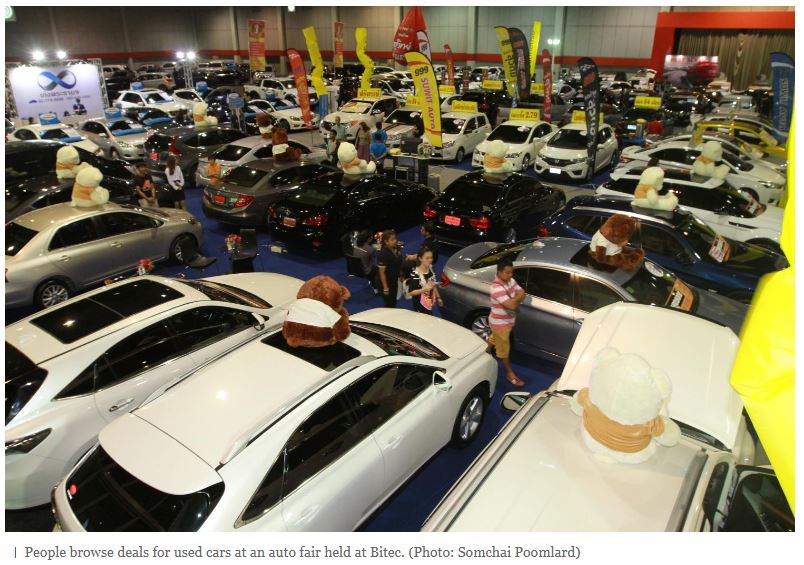Thailand: Executives urge pricier loans for used cars, bikes
The Joint Standing Committee on Commerce, Industry, and Banking (JSCCIB) has asked the government to increase the maximum interest rate for used car and motorcycle loans to encourage leasing companies to lend to lower-income earners.
Recently the Office of the Consumer Protection Board proposed a maximum rate of 15% per year for all types of vehicle loan products, including new car loans, used car loans, and motorcycle loans.
However, the private sector believes low-interest rates for automotive loans will impact small leasing companies, especially local companies, making it more difficult for car buyers to access finance.
Low interest rates could impact the automobile industry’s supply chains, said Supant Mongkolsuthee, chairman of the Federation of Thai Industries, in a meeting of the JSCCIB yesterday.
As a result, he said the committee plans to ask the government to raise the ceiling interest rate for used car loans to 20% per year and motorbike loans to 36% per year. The group has no issue with the maximum rate for new car loans being 15%.
“As motorcycle loan borrowers are in the lower-income segment and most of them do not have a financial statement, a maximum low-interest rate of 15% will make small local leasing companies reluctant to grant loans to this segment,” said Mr Supant. “This could push borrowers to opt for loan sharks, which have higher interest rates.”
The JSCCIB’s proposed 36% interest rate ceiling for motorcycle loans is in line with the business nature and risk, he said. On average, the loss ratio for motorbike loans is around 37%, Mr Supant said.
The suggested maximum interest rate increase for motorcycle loans would provide opportunities for lower-income borrowers to access finance, particularly amid the recovering economy, he said. This includes borrowers applying for motorcycle loans to earn a living, such as by being food delivery drivers.
For 2022, the JSCCIB forecasts Thai GDP growth in a range of 3-4.5%, compared with its estimate of 0.5-1.5% growth this year. After the country’s reopening on Nov 1, the economy has gradually picked up as part of a K-shaped recovery, the committee said.
Exports are a key factor supporting the Thai economy next year, with a predicted growth rate of 3-5% in 2022 and 13-15% this year. Domestic consumption is expected to improve next year alongside higher public confidence, thanks to the country’s progress in vaccination with 95 million doses administered, accounting for around 70% of the total population.
Source: https://www.bangkokpost.com/business/2228915/executives-urge-pricier-loans-for-used-cars-bikes


 English
English




